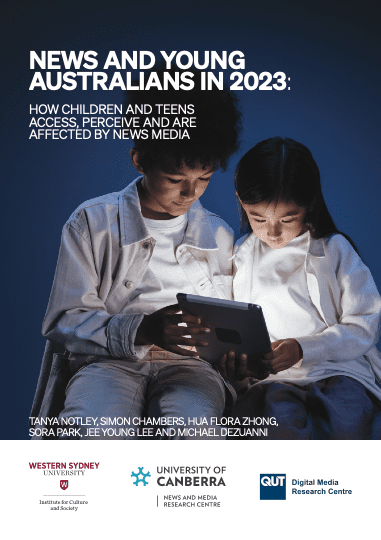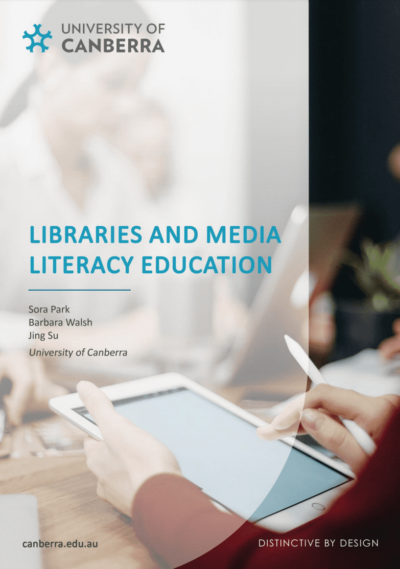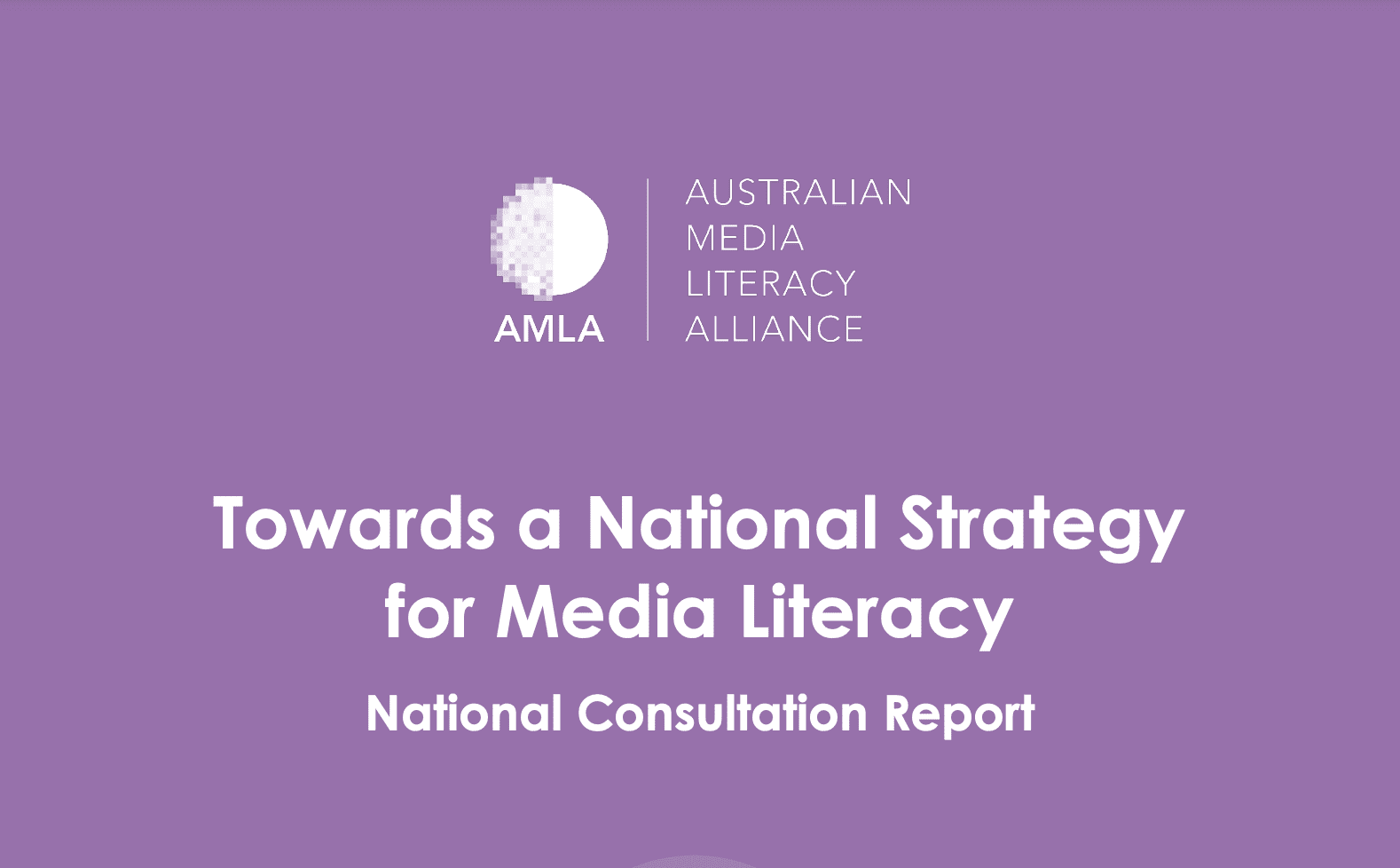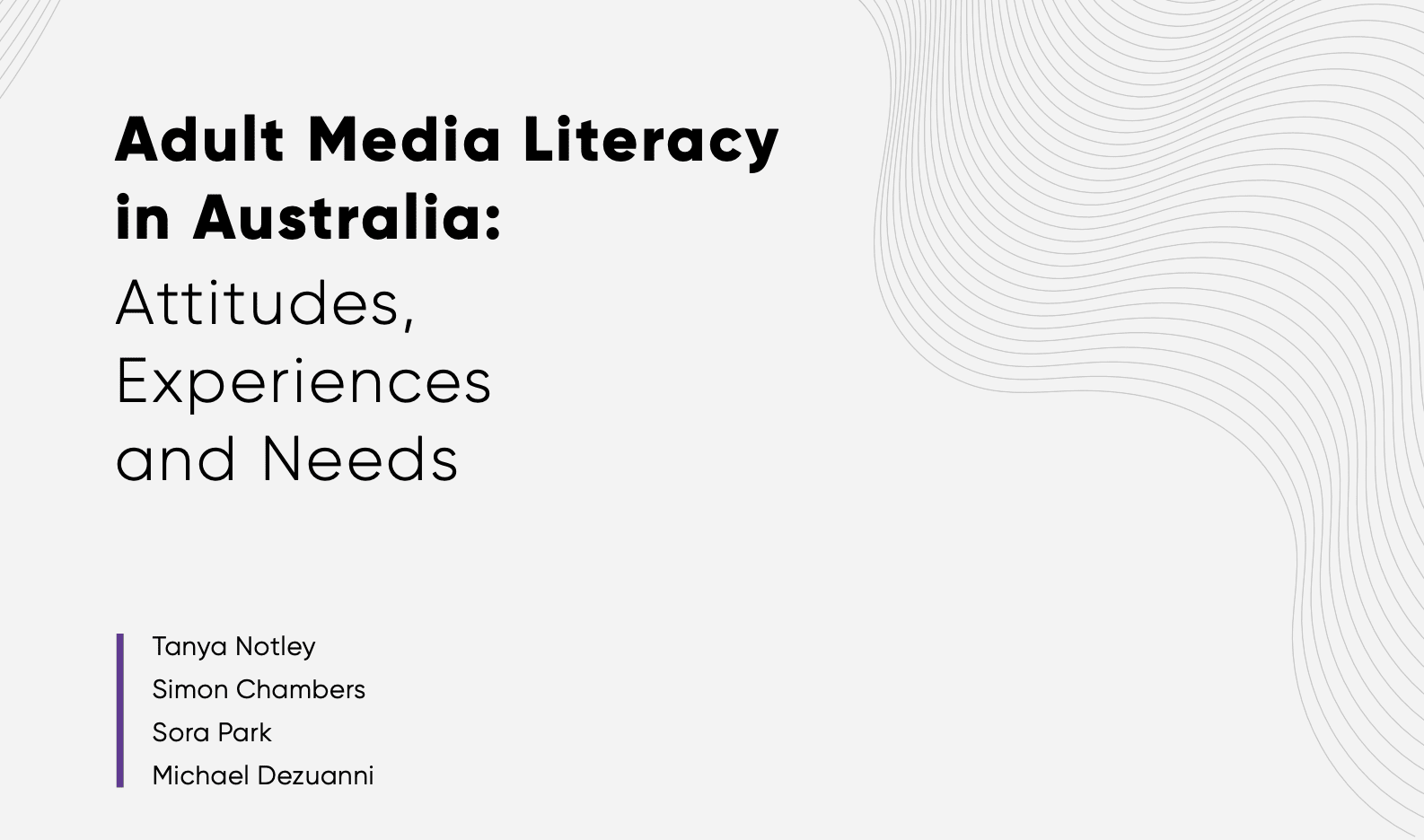Adult Media Literacy in Australia: 2024 Report
Access Full Report Here
This report examines adult media literacy abilities, needs and experiences in Australia.
Between January and April 2024 the authors surveyed a representative sample of 3,852 adult Australians, alongside additional booster samples for culturally and linguistically diverse (CALD) Australians and First Nations Australians. This survey repeated questions asked in an inaugural 2021 Adult Media Literacy survey to produce longitudinal data, while also introducing new questions that respond to pressing issues and new digital media developments.
Key findings
- The survey findings show that most adult Australians use different types of digital media on a regular basis, but their overall confidence in their digital media abilities is quite low, with very little change since 2021.
- There is overwhelming demand among Australians for adult and school-based media literacy education. However, too many Australians have not received any form of media literacy education or they don’t have access to support when they need it.
- The results clearly show that media literacy provides a range of benefits. Adults who are more confident about their media abilities are more engaged with a range of media activities, are more likely to know how to proactively respond to online harms, are more confident they can identify misinformation online and are more aware of new technologies that may affect their lives, such as generative AI.
News and Young Australians
Access Full Report Here
The Australian Media Literacy Alliance (AMLA) members supported the 2023 Young Australians and News national survey. This longitudinal provides comprehensive findings about the changing news attitudes, practices and experiences of young Australians aged 8-16 years.
The 2023 survey analysis shows that news plays an important role in young people’s everyday lives and most young people get news from diverse sources. Family are the most frequent and trusted source of news for young people. Young people have a low level of trust in Australian news organisations, and they do not believe that they are understood by these organisations.
There has been an increase in the number of young people who get news from social media. However, there is a low level of awareness of how algorithms deliver news.
Three in four young people did not receive any lessons in school over the past year to help them determine if news content is true and trustworthy, indicating a gap in media literacy education.
>Download the full report here
Libraries and Media Literacy Education
Access Full Report Here
In 2023 the Australian Library and Information Association collaborated with researchers from the University of Canberra to conduct a national study of the media literacy needs and perceptions of libraries and information services (LIS) professionals. They found that among LIS professionals, there was a strong perception of their role in educating the public in media literacy, especially the adult population. LIS professionals also expressed a desire to learn more about media literacy and media literacy training. To respond to this need, ALIA and the University of Canberra developed a 7-week short course for LIS professionals which ran over two sessions in 2022 with a total of 44 students. They then evaluated the effectiveness of the course in preparing libraries in their media literacy education development and delivery. This report shares findings from the national survey and the evaluation study.
Towards a National Media Literacy Strategy
Access Full Report Here
The Australian Media Literacy Alliance (AMLA) developed this document to outline a direction for the development of a national strategy for Media Literacy in Australia. It draws on a national survey of 3510 Australian adults about media use, attitudes and abilities as well as a consultation process involving six workshops across Australia conducted in September 2021.
Access Full Report Here
In 2020 we implemented Australia’s first nationally representative survey on media literacy. The survey was designed with input from diverse voices in the media literacy field including researchers, media producers, policymakers, government agencies, educators and public cultural institutions. We launched the survey report at events in Sydney, Melbourne, Canberra and online on April 13 2021.
The survey findings will also be used to inform a national media literacy strategy co-design process. As part of this process we will host online and face-to-face events to engage organisations who are supporting media literacy across the country. These events will take place in May-July 2021.




